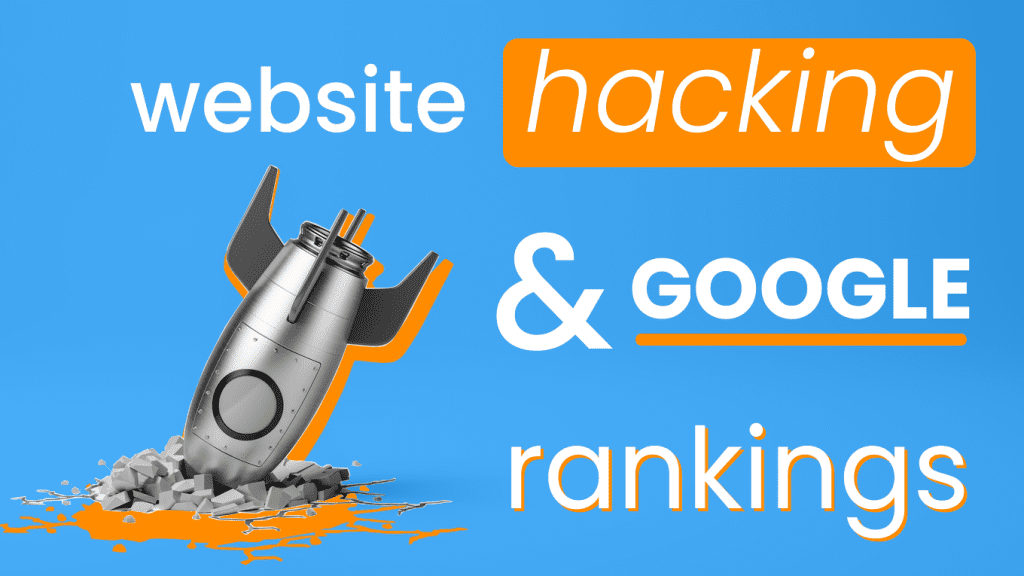falling from grace: the devastating effects of website hacking on Google rankings.

It is dishearteningly common to come across small business owners who have either fallen victim to website hacking or are facing a critical risk of compromise. While the recognised concerns of potential financial repercussions and customer phishing weigh heavily on their minds, there is an additional, lesser-known concern that can have an equally devastating impact: the loss of Google rankings.
the devastating consequences of website hacking.
When a website falls victim to hacking, the aftermath can be catastrophic. Not only does it compromise the security and integrity of the site, but it also leads to significant repercussions for search engine rankings. Google, in particular, takes a firm stance against hacked websites to protect its users from potential harm.
negative impact on search rankings.
Google’s algorithms are designed to prioritise user experience and ensure that search results offer relevant, reliable, and secure websites. When a website is hacked, it not only raises concerns about user safety but also indicates a lack of trustworthiness. As a result, Google takes swift action to safeguard its users, often penalising hacked websites by tanking their search rankings. In some cases removing them from the search results entirely.
loss of organic traffic and revenue.
A drop in search rankings for most websites directly translates to reduced organic traffic, as users are less likely to discover and visit a hacked website. This decline in traffic can have severe financial implications for businesses, with potential losses in sales, conversions, and advertising revenue. The negative impact on brand reputation can further exacerbate the consequences.
rebuilding trust and recovering rankings.
Recovering from a hacked website and restoring search rankings requires swift and thorough action. This process involves identifying and addressing security vulnerabilities, removing malicious code or content and implementing robust security measures to prevent future attacks. Engaging in effective communication with Google and requesting a review of the website are vital steps to regain lost trust and rebuild rankings. If you are quick enough you can repair / clean oyur website of any malicious content before Google finds out. This will avoid a huge drop in rankings that you may never recover from.
“One of the unfortunate things we noticed is that 45% of respondents report that their traffic never returned to normal, even after cleaning.” Wordfence
importance of proactive website security.
Prevention is always better than cure. Businesses and website owners must prioritise proactive website security measures to reduce the risk of hacking incidents. Implementing strong passwords, keeping software and plugins up to date, regularly backing up website data, and employing security plugins or services are crucial steps towards enhancing website security.
collaborating with professionals.
In the event of a website hack, seeking assistance from website professionals can significantly expedite the recovery process. Their expertise in identifying and resolving security vulnerabilities can help restore the website’s integrity and improve the chances of recovering search rankings.
conclusion.
Website hacking is an unfortunate reality with almost every business having their own website and its impact on Google search rankings cannot be understated. The consequences, including loss of organic traffic, diminished revenue, and damage to brand reputation, highlight the urgent need for robust website security measures. By investing in proactive security practices and promptly addressing any security breaches, businesses and website owners can mitigate the risks, protect their online assets, and maintain a strong online presence that withstands the challenges posed by hacking incidents.
If you need help with your website, feel free to contact us. We offer website recovery & repair services as well as various website design, optimisation and maintenance packages to get your site back to where it should be.